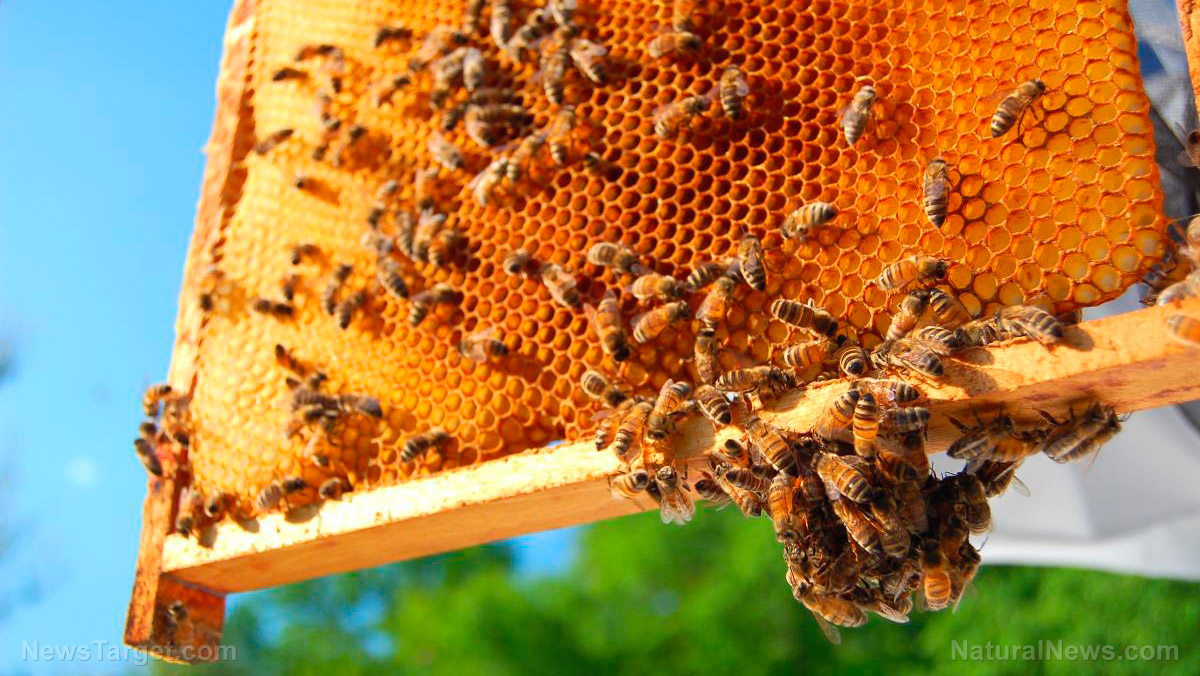Study shows Mexican marigold can be used as a natural herbicide
01/17/2019 / By Zoey Sky

Chemical herbicides often cause more harm than good, especially since they can pollute farm soil and water sources. These substances can also be harmful to the health of the people who handle them. To address this concern, a team of researchers conducted a study to determine if Mexican marigolds (Tagetes erecta L.) can be used to create a natural alternative to chemical herbicides.
The study was published in the journal Industrial Crops and Products.
Mexican marigold essential oil as a pre- and post-emergent herbicide
Various studies have analyzed plant-derived substances like essential oils, which are some of the most effective natural alternatives to chemical herbicides. Plant-derived substances are often safe to use, making them a popular choice when it comes to eco-friendly options to harmful chemical solutions. (Related: Scientists working to understand the defensive properties of lavender oil, hoping to develop natural pesticides.)
In the study, researchers analyzed the chemical composition of essential oil extracted from Mexican marigolds. They tested the herbicidal activities of the essential oil, which was used as a pre-and post-emergent herbicide on cockspur grass (Echinochloa cruss-galli).
The researchers extracted essential oil from Mexican marigolds, and the final product was analyzed using gas chromatography-mass spectrometry to determine its chemical composition. Based on the test results, the oil contained relatively high amounts of monoterpenes like:
- Piperitone (17.12 percent)
- Piperitenone (10.46 percent)
- Ocimene (8.59 percent)
The essential oil also contained sesquiterpenoids, such as neophytadiene (16.18 percent) and caryophyllene (11.10 percent).
Before testing, the researchers formulated the essential oil as an emulsifiable concentrate (EC-EO) for herbicidal applications. The team also used Petri dish bioassay for EC-EO concentrations to verify the seed germination and seedling growth of the cockspur grass. The bioassay results showed that the EC-EO successfully prevented the germination and growth of cockspur grass seeds through the inhibition of alpha-amylase activity.
The researchers also assessed the post-emergence application of EC-EOs by applying the concentrate to 21-day-old cockspur grass plants. After the plants were exposed to the concentrate, their leaves dried out and wilted.
Applying greater concentrations of the Mexican marigold essential oil could reduce the chlorophyll a, b, and carotenoid content of the cockspur grass. The researchers believe that this means EC-EO can be used to stop photosynthetic metabolism. They added that the concentrate reduced membrane integrity and increased thiobarbituric acid reactive substances in the grass.
Based on the findings, researchers concluded that the phytotoxic compounds in Mexican marigolds could potentially be used to develop safe and effective natural herbicides for weed control.
Fast facts on Mexican marigolds
The Mexican marigold is also called the African marigold, Aztec marigold, Big marigold, or American marigold.
- The flowering plant belongs to the family Asteraceae.
- The Mexican marigold can produce orange or yellow blossoms during early summer, early fall, late summer, late spring, and mid-summer.
- The plant can grow up to 1 m tall (three feet and three inches) by 0.4 m (one foot and four inches) at a medium rate.
- The Mexican marigold, which flowers in July, is a hermaphrodite species, which means it has both male and female organs. It is pollinated by insects.
- The plant will thrive in well-drained soil, and it can grow in heavy clay soil. The Mexican marigold can’t grow in the shade, and it prefers dry or moist soil.
- Grown in cultivated beds, the petals of some varieties of the plant produce a yellow dye that can be used as a saffron substitute for coloring and flavoring foods.
Browse other articles about research findings on natural alternatives to herbicides at GreenLivingNews.com.
Sources include:
Tagged Under:
















